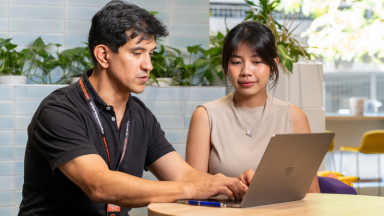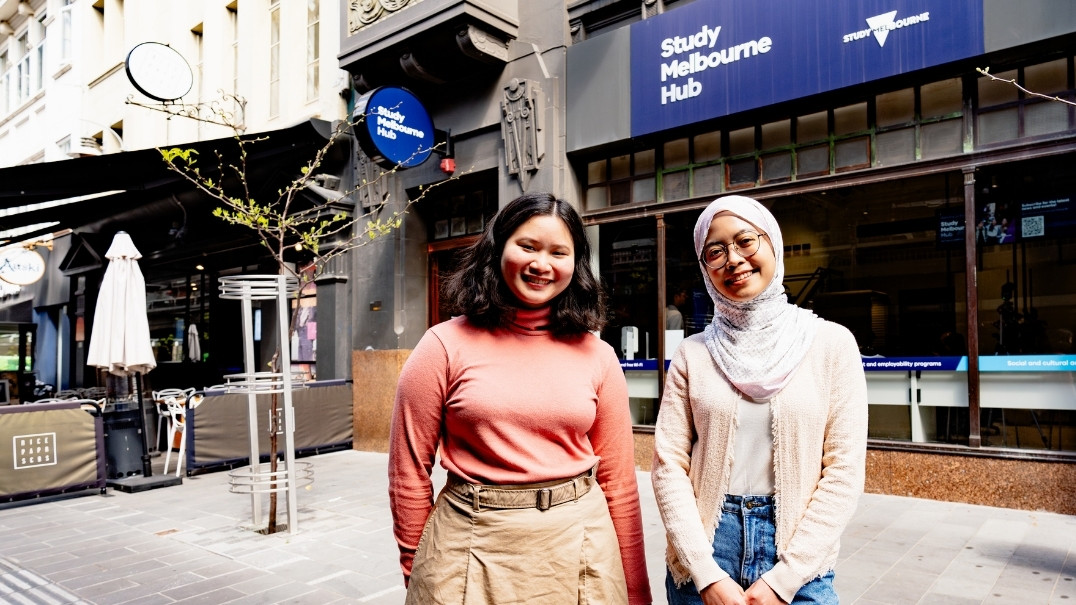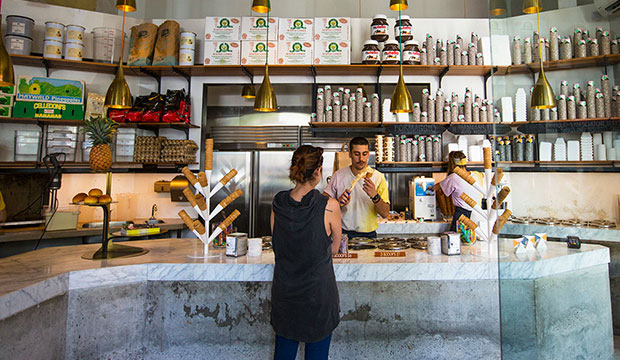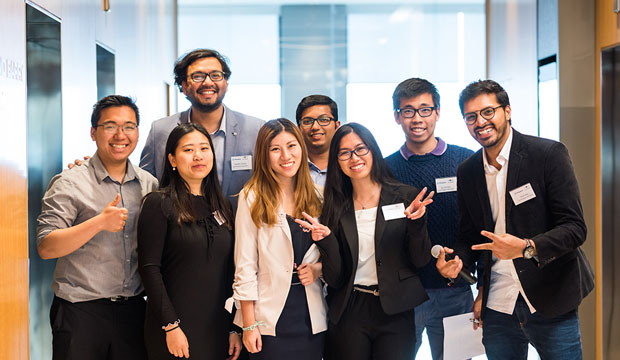Whether you plan to work part-time during your studies or seek a full-time graduate role, understanding your work rights is essential.
Can I work in Australia as an international student?
If you have a Student (subclass 500) visa, you are entitled to work up to 48 hours per fortnight during the semester. Over holidays and study breaks, you can work unlimited hours. For more information on your working hour obligations, consult the Department of Home Affairs website.
International students have the same work rights in Australia as permanent residents and citizens.
Know your employment type
Full-time, part-time and casual
Your employment type impacts your entitlements, like leave and rate of pay.
If you work full-time or part-time, you are a permanent employee. In a full-time role, you will usually be contracted to work for 38 hours each week. If you are engaged for fewer than 38 hours weekly, you are a part-time employee.
Permanent workers receive paid annual leave and sick leave.
Casual employees do not receive guaranteed hours of work. If you are casual, your employer can choose your shifts or call you in on short notice.
Because they are not entitled to certain benefits (such as paid annual leave), casual workers have a higher hourly rate of pay, known as ‘casual loading’.
Employees and independent contractors
It is also good to know whether you are classified as an employee or an independent contractor.
Employees work for a business. Legally, they must be paid a minimum wage, receive superannuation and be covered by worker’s compensation insurance.
Independent contractors run their own businesses using an Australian Business Number (ABN). They must negotiate their own pay, arrange their own insurance and pay their own tax.
Awards and agreements
Minimum pay, entitlements and conditions for employees are set out under a registered agreement, award or other legislation.
Awards cover people working in certain industries, like hospitality and retail. Under such awards, certain entitlements apply, such as public holiday loading. This criterion entitles eligible workers to receive higher hourly wages when they work on public holidays; these are often known as penalty rates. You can find public holiday rates by using the Fair Work Ombudsman’s Pay Calculator.
Registered agreements outline the requirements for people working for some businesses. Check with the Fair Work Ombudsman (FWO) to see if your role is covered by an award or agreement.
Your workplace rights
Get help
If you are unsure about your rights or think you may not be receiving the right pay or entitlements, help is available.
You can contact or visit the Study Melbourne Hub and if needed, our team can refer you to a free legal advice service if you have concerns related to your employment conditions.
This free legal service is available to help international students understand the laws related to employment (e.g. understanding how many hours you can legally work, what to do if your employer does not pay you, and where to go if you are being treated unfairly at work).
View transcript
Speaker, Gabrielle: Working in Victoria as an international student, it's important to know you have rights at work.
[Text on screen: Gabrielle, JobWatch. Gabrielle is at the Study Melbourne Hub, colourful first nations artwork in background]
Gabrielle: You are entitled to fair pay, safe conditions and fair treatment at work, regardless of where you work or how many hours you work.
[Text on screen: what kind of rights do I have? Visuals: International students meeting at the Study Melbourne Hub with laptops, Gabrielle meeting with students]
Gabrielle: Understand your contract. If you're working with an ABN or in gig work, the rules may be different and underpayments are common.
Gabrielle: If you're being underpaid, unfairly dismissed or treated poorly, you don't have to deal with it alone.
[Text on screen: What if I'm being treated unfairly? Visuals: Gabrielle meeting with students at the Study Melbourne Hub, student writing in notebook]
Gabrielle: You can get free legal advice and support at the Study Melbourne hub.
[Visuals: Staff at the Study Melbourne Hub working with students, Gabrielle speaking to camera]
Gabrielle: We're here to help you work safely, confidently, and legally.
[On screen: Study Melbourne logo]
Safety and security
Your work rights in Australia protect you from being discriminated against for any reason, such as due to your race, age, gender, sexuality, religion or culture. Bullying and harassment are also prohibited.
Your employer is also responsible for ensuring you are kept safe from physical and mental harm in the workplace.
Fair pay
All employees in Australia must be paid at least the legal minimum wage. You may even be entitled to a higher rate of pay depending on your award, agreement or employment type.
Your employer is also obliged to pay you on time and to provide accurate payslips. If you are over 18, your employer must contribute to your superannuation.
Leave
If you work part-time or full-time, you are entitled to paid sick and annual leave.
Casual employees and self-employed people do not receive paid leave from their employer.
Protection from exploitation
While most employers know and follow the law, it is still valuable to be aware of common types of workplace exploitation, such as:
- Being underpaid
- Having your pay docked or deducted unfairly, such as for accommodation or meals
- Being forced to break the conditions of your visa, such as by working too many hours
- Threats to cancel your visa or report you to authorities
- Not receiving leave or other entitlements
- Unpaid training
- Having your passport taken away
If you are unsure if your working conditions are legal, contact the Study Melbourne Hub or the Fair Work Ombudsman. Under the Assurance Protocol, your visa will not be cancelled if you report exploitation or unfair treatment.
View transcript
[Inspiring music, text on screen: Victorian International Education Awards 2023, followed by speaker talking to camera, and various footage cutaways of speaker enjoying their study experience in Melbourne]
Jessica: Hi, my name is Jessica. I'm an international student studying accounting at Uni. To help with my tuition fees and to get some work experience, I have always had a job. When I first arrived in Australia, it was hard for me to get a job at a time because my English wasn't great then. I eventually found a job on a community website as a cashier in a grocery store. I thought at a time that it was a great place to start. I didn't have to speak too much English because my boss was from the same country as me, and most customers could speak my native language. I felt really comfortable working there and my boss treated me well.
I was getting $10 an hour to start off with, and after a few months it was increased to $13 an hour. I always received my pay every week on time in cash, so I was happy. Then my boss started asking me to work more and more hours, including the weekends, and never gave me a payslip, so I was a bit worried about whether I was paid right. So I always kept a record of the hours that I worked and the amount that I was paid.
It was a pretty tough time, but things changed after I spoke with a student advisor from my Uni about my situation at work. She encouraged me to contact the Fair Work Ombudsman for help because she thought that the wages I received were well below the minimum wage set by law. I spoke with an advisor from the Fair Work Ombudsman on the phone, and she was really helpful. She told me that even though I'm an international student, I have the same workplace right as any other worker in Australia. I felt that the advisor really understood my situation and I decided to lodge a claim.
My claim was then investigated by a Fair Work inspector. Because I kept a good record of my work hours and the money I was paid, it was possible to work out that I was underpaid about $8,000. My boss cooperated with the Fair Work Ombudsman through the investigation and back paid the money he owed me. I'm now working at a fashion shop and I am receiving the correct entitlement. I just want to say that you can trust the Fair Work Ombudsman and you won't get into trouble for asking for their help. Most importantly, the Fair Work Ombudsman Services are free.
[On-screen logo]
Study Melbourne
[End transcript]
Page last updated:





